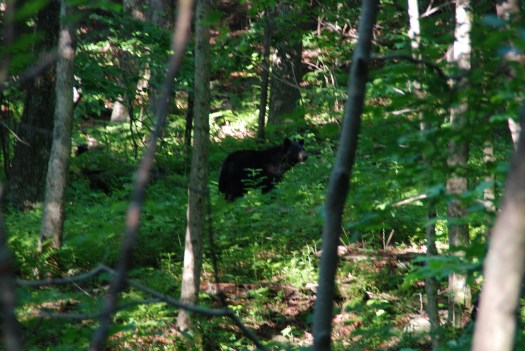 If you’ve been reading this blog for a while, you’ll know that we’ve had a busy summer. If not, welcome, we’ve had a busy summer. I am trying to finish my graduate thesis, with all the experimenting, writing and bureaucracy that entails. Theresa has been working full time and writing full time putting together a hiking guide to DC. So on the weekend we actually go on these hikes so she’ll have something to write about during the week. Needless to say, there’s not a lot of time in between for us.
If you’ve been reading this blog for a while, you’ll know that we’ve had a busy summer. If not, welcome, we’ve had a busy summer. I am trying to finish my graduate thesis, with all the experimenting, writing and bureaucracy that entails. Theresa has been working full time and writing full time putting together a hiking guide to DC. So on the weekend we actually go on these hikes so she’ll have something to write about during the week. Needless to say, there’s not a lot of time in between for us.
In fact, since we went on vacation with Theresa’s family toward the end of May, we have not had a single day not spent entirely either at work or on a mountain hiking (before that, it was I don’t even know how long). Needless to say, today was a welcome change to all that. We had set a goal of two ten mile hikes for the weekend, and got them both in on Saturday (minor aside: two more bear sightings to add to the total, including one that must’ve been 40 feet up a tree … it quickly rappelled down and ran off … so that’s why they tell you not to climb a tree to escape a bear).
Our prolific Saturday left all of Sunday off, no major trips to make, no major jobs to accomplish. We just were able to have a normal weekend day like we used to. We slept in. We made chocolate chip waffles and bacon for breakfast. We read the Sunday paper. We made our first (and possibly only) trip to the pool. We even got to spend a little time planning our trip. Who would’ve thought, crazy. But the joy of it was we had the freedom to wake up when we chose and decide what we wanted to do that day.
And so we got to talking about how soon, this would be every day. Sure, we’ve got grand goals and buses and flights to catch, but we’ll wake up every morning with complete freedom. To lay around if we want. To go somewhere if we want. To not have drastic future consequences either way. No deadlines. No requirements. Just where we are now, where we want to go and where we want to be at the end of the day. It sounds so liberating, and ultimately, a big reason why something like a round the world trip appeals so much to us.
But this actually led us back to something we discussed long ago in our planning, and I think today reinforced its importance. We both have something wrong with us, in that when we have the freedom to choose ourselves, we end up busier than ever. When we travel, we both have a tendency to try to do as much as we can in as little time as we can, usually due to the fact that we have a short amount of time and a lot of things we want to see, but is also just our nature. Such nonstop busy-ness becomes unsustainable after a short while, especially on such a long trip. I guess you could say this is our first marathon after a number of short sprints. So we need to learn to pace ourselves.
We decided it would very important to regularly take a day and do nothing out of the ordinary. Sleep in, wander to the market, sit in a hammock and read a book, take a short walk. Recharge. Today was a fine example. We’ve been feeling exasperated, hopeless against the piles of things we need to do, even as we furiously work to do them. But we spent just one day escaping from it and it feels more manageable. Not do-able, mind you, just more manageable. One day a week (or so) where we make it a goal not to have any goals, and we should be able to keep our sanity for the trip.
So that’s our plan. Anyone out there have similar “issues” and found good ways of dealing with them?






You must be logged in to post a comment.